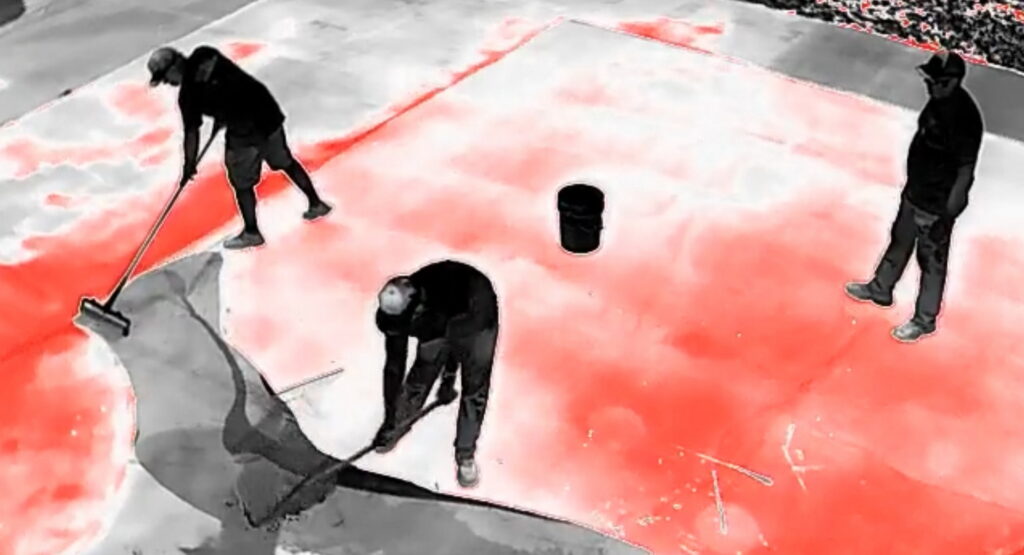The GAF Cool Community Project recently finished a task that saw it paint 1 million square feet (92,903 square meters) of roads, playgrounds, and parking lots in the Los Angeles, California, neighborhood of Pacoima.
Although the group invited artists to paint some murals on the ground, the need for roads not being distracting means that, for the most part, drivers might not notice a change in color. They may well feel the effects of the paint, though, according to Fast Company.
That’s because the paint used is made by Streetbond, a subsidiary of GAF, and is called “Invisible Shade.” It promises to reflect sunlight off the streets and, hopefully, cool the community down.
Read Also: There Are 8 Parking Spots For Every Car In America, So Cities Reconsider Their Rules
StreetBond pushing innovation — notice the drone in the sky? It’s measuring the reduction in surface temperature on the basketball court from our innovative coatings that reflect the sun’s heat.
Art + Science = a cooler place to play pic.twitter.com/akWBB2FOUt
— Streetbond (@thestreetbond) July 22, 2022
The paint is being used to combat something called the urban heat island effect, in which cities become hotter than nearby rural areas. The phenomenon happens as a result of a number of factors, including the lack of trees to provide shade, the heat of human activity, and more.
One of the culprits behind the effect, though, is the vast quantities of concrete and asphalt in cities, which absorb and trap the heat, making cities feel hotter. It’s a widely felt phenomenon and has led to cities like New York painting the roofs of their buildings a reflective white in order to help push out some of the heat.
The Invisible Shade paint being used for this project, though, is even cleverer. The manufacturer says that it not only reflects light in the visible spectrum, but light in the infrared spectrum, too, which is where the majority of the sun’s heat comes from.
Reflective paint, no matter how clever, won’t solve global warming, but it can make cities feel more livable. The results of this project are just anecdotal, but so far, the paint appears to have contributed to cooling the surface of painted areas in Pacoima by 10 to 12 degrees. The company will now spend the next two years studying the effects of the paint more closely to see how successful it is.
“The ultimate goal is not just to lower the ambient temperature of the community but to see how it impacts the livelihoods of people in the community,” says Jeff Terry, vice president of corporate social responsibility and sustainability at GAF.
Did we just find ghosts?
Nope – StreetBond coatings with Invisible Shade immediately cooling the surface of a basketball court in Pacoima, CA. The community highlighted areas of greatest impact and we got to work. #streetbond #climate #climatechange #climatetech #infrared pic.twitter.com/Lbmv462ez7
— Streetbond (@thestreetbond) July 25, 2022




